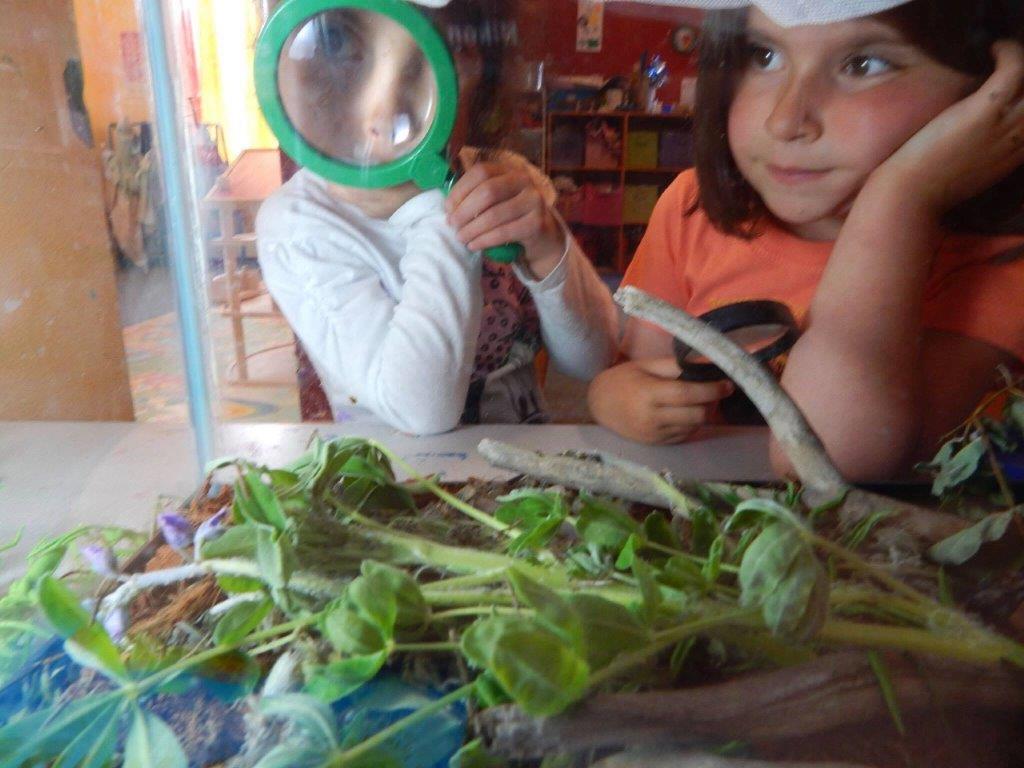
One way of looking at a child’s cognitive ability is to compare it to an “air traffic control system,” helping manage and respond to the vast body of the information and experiences he or she is exposed to daily. Children also learn social conventions by cognition: for example, the words one, two, three; or atauciq, malruk, pingayun; or uno, dos, tres, correspond with the numerals 1, 2, and 3 and represent specific sets of quantity.
Cognition is closely tied to what many educators are calling “STEAM” initiatives (Science, Technology, Engineering, Arts and Mathematics).
Science
Children are scientists from the moment they are born, using their senses to observe and gain knowledge about the world around them. They become increasingly more able to make predictions and investigate their world to solve problems and answer questions. These skills are important aspects of school readiness as they provide a process for children to ask and answer their own questions. Children’s curiosity naturally leads them to learn about the earth and all living things.
Parents and early educators can support these important explorations by asking open-ended questions, encouraging hands-on experiences, and providing opportunities to experiment and observe the world.
Arts
Children’s creative development begins in their very first days. They interact with their family members in loving care that may include the soothing sounds of lullabies and the rhythmic movements of being rocked and patted. As their vision improves, they see the colors and shapes in their home environment and in nature. As their mobility increases, they move their bodies and experiment with what their muscles can do to get places and to express themselves. And, as children are able to make use of various tools, they make marks on paper, engage their senses with finger paint and modeling dough, and explore and create with various toys and objects. Books, photographs, music and media surround young children and expose them to the creativity of others.
The arts provide children with a way to express ideas and feelings. Music, dance, movement, drama, and visual arts stimulate children to use new words, manipulate tools and media, and solve problems, as well as being playful. Creativity is a tool that children can use in all other learning Domains.
Parents and Early Educators encourage creativity through providing materials, time and appreciation.
Math
Children’s development of mathematical understanding begins in the very first months of life and continues to grow and expand as they interact with others and with the world around them. Learning math is directly related to playful explorations of blocks, water, sand, puzzles, and games.
The components within this Domain address number sense and quantity; number relationships and operations; classification and patterning; measurement, comparison, and ordering; and geometry and spatial sense.
As children investigate mathematical concepts in hands-on experiences, they grow in their approaches to learning. They solve problems, think creatively, and apply concepts. Their social-emotional skills are enhanced as they develop greater confidence as learners and work collaboratively with others.
Remember:
While this Domain represents general expectations for cognitive development, each child will reach the individual learning goals at his or her own pace and in his or her own way.
Throughout the diverse cultures in Alaska, people value different ways of knowing and have different world views. All cultural ways of knowing are of equal value. A child’s family culture can be incorporated into each of these areas.